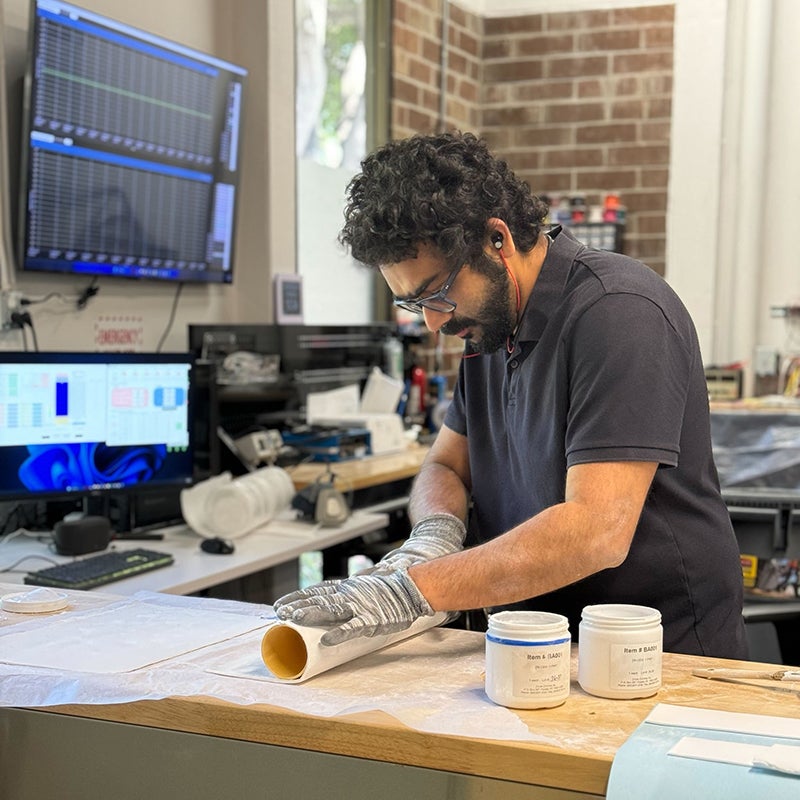UIC graduate leading charge to reduce global emissions in cement
1

Cement startup Furno Materials, Inc. was recently selected for a $20 million cost share award from the U.S. Department of Energy (DOE) to build a low-carbon, modular Portland cement plant in Chicago. The facility will use recycled industrial waste materials as feedstock to make Portland cement carbon neutral.
At the center of the company’s research and development is UIC graduate Jai Mehta, who earned his master’s degree in 2018 and his PhD in mechanical engineering in 2022. After graduating, he joined Furno in 2023.
“We are not aiming to change the cement chemistry or the raw material but changing the process of how the cement is made to make the production green,” Mehta said.
Cement accounts for approximately 8% of global CO2 emissions as its production is highly carbon intensive. As limestone is converted into cement, a lot of CO2 is released. In addition, it requires very high temperatures and conventional plants use mostly coal-fired systems that release a lot of pollutants.
“We are changing the process by using a novel combustion technology and applying it to making cement. We will be making the traditional Portland cement but with better technology,” he said.
Portland cement is the most common type of cement in general use around the world as a basic ingredient of concrete, mortar, stucco, and non-specialty grout.
At UIC, Mehta worked under the direction of Professor Ken Brezinsky in the High-Pressure Shock Tube Laboratory, where his research focused on fuel characterization, natural gas combustion, and combustion kinetics.
“I’m applying that knowledge and experience working with natural gas and combustion in general toward developing the technology and then eventually implementing it in a first-of-its-kind cement plant,” Mehta said.
As an expert in combustion, his role is optimizing the combustion parameters required for the process to occur, developing protocols for operation, and implementing all of them at the final plant.
“There’s a lot of combustion testing, building test prototypes, scaling them up for the plant, and then eventually applying it to a mechanical design,” he said.
The Furno plant will also be much smaller than traditional capital-intensive plants, allowing them to manufacture smaller quantities locally.
“Our technology has enabled the making of modular plants. So even the Chicago plant is going to be somewhat of a modular plant, where you can add and subtract capacity much more easily,” Mehta said.
“Concrete makers don’t have to rely on one very big plant to ship cement. Instead, they can make the quantity needed as locally as possible,” he added.
Furno is partnering with Ozinga – one of the country’s largest concrete producers – to implement the technology at the new plant where the cement will be used in Ozinga’s concrete at its facility near Chinatown in Chicago.
“Ozinga has been interested in using our technology. They have multiple ready mix concrete plants in Chicago, their cement demand is extremely high, and they have been considering making cement by themselves using greener methods,” he said.
In addition to the Ozinga partnership, the new plant will provide new opportunities for the community. They are expected to generate at least 80 jobs, varying from running the plant and day-to-day operations to some engineers.
“The location is very strategically chosen to support generating more jobs in the community, which has experienced some industry closures in the past that has economically affected people,” he said.
“Of course, we hope to get people from UIC internships and the new jobs eventually,” he added.
The Furno plant is expected to be up and running in two years and at full capacity in four years.